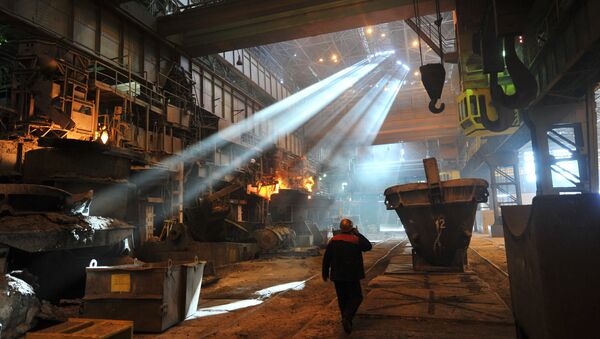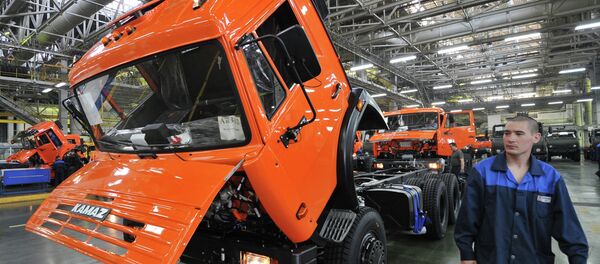According to the EBRD report, Russia is slowly but surely recovering from the recession it has faced over the last two years, with positive growth forecast for 2017 following an estimated 2.8% drop in GDP in 2015 and a further decline of 0.2% in 2016.
"Russia's economy is projected to return to moderate growth after a cumulative output decline of 3 percent in 2015-16," the report noted. It indicated that in addition to stabilizing oil prices, Russia has benefited from increased capital flows into its bond and equity markets, including in the first months of 2017. The report also praised the Russian Central Bank's efforts to fight inflation, and their success in bringing inflation down to 4.3% in 2016, which compares well against the peak inflation rate of 16.9% in March 2015.
Pushing its own agenda, the EBRD emphasized that Russia needs to aggresively pursue reforms to support investment. Furthermore, in the face of continued geopolitical tensions and Western sanctions, annual growth will remain only "at around 1 to 2 percent annually" over the long term "due to low investment," the Bank said.
The EBRD isn't the only major institution to have offered a positive assessment of Russia's growth prospects recently. Last week, the International Monetary Fund published its own report, explaining that the Russian economy was on the road to recovery amid stabilizing energy prices, an uptick in private consumption and growth in manufacturing and credit. This followed on a report released last month, which revised earlier 1.1% and 1.2% growth forecasts for 2017 and 2018, respectively, to a forecast of 1.4% per annum in the same period.
Independent economists, too, note that Russia's recovery prospects are strong. Late last month, Constantin Gurdgiev, Russian economy expert and professor of finance at Trinity College Dublin, wrote that Russia's composite Purchasing Managers' Index, which indicates things like companies' production, new orders, order backlogs and employment levels, grew to 56.7 in Q1 2017, which was "the strongest growth performance since 4Q 2006."
Russian economic officials are even more optimistic, confirming that the country is on track to meeting its target of 4% annual inflation; the Federal State Statistics Service has reported that inflation was down to 4.1% (annualized) for the month of April, while the Ministry of Economic Development expects it to drop to 3.8% in May.
Ultimately, the Ministry expects Russian GDP growth to reach 2% in 2017, surpassing both the EBRD and IMF forecasts.
The minister explained that the government and Vnesheconombank, a state-owned development bank, are now working on a program of project-tied lending to help finance targeted development and minimize risks to investors at the different stages of the investment process.





